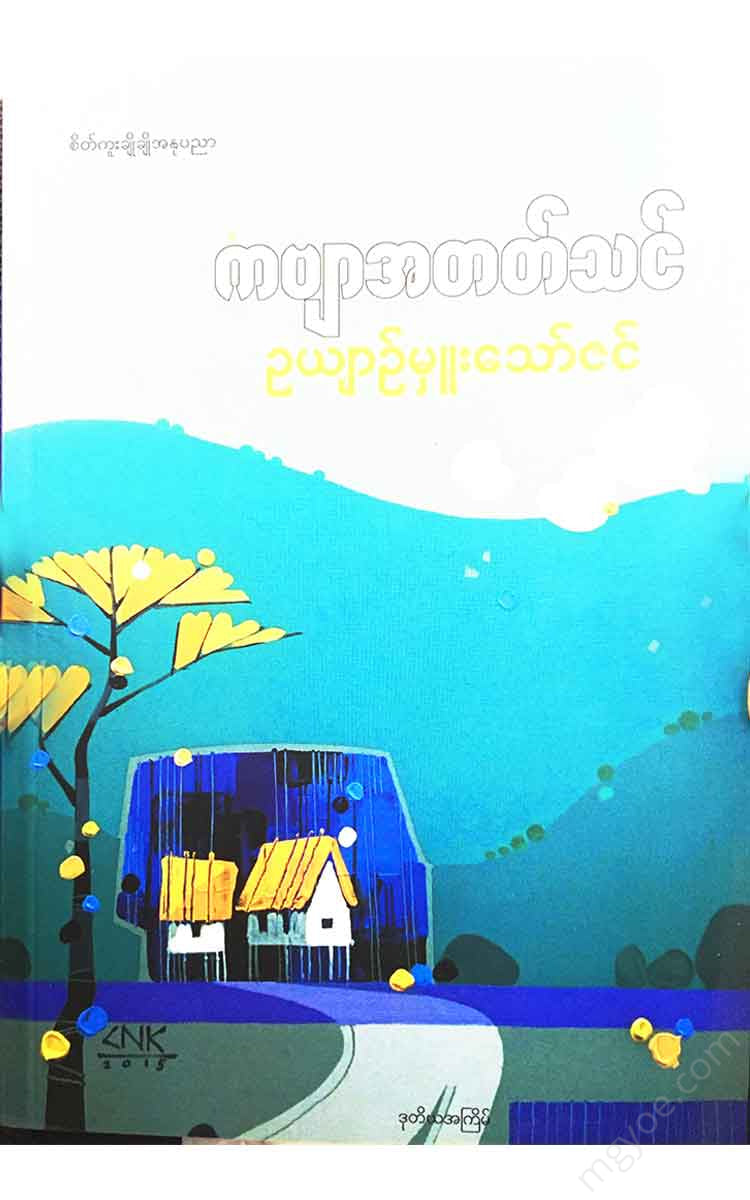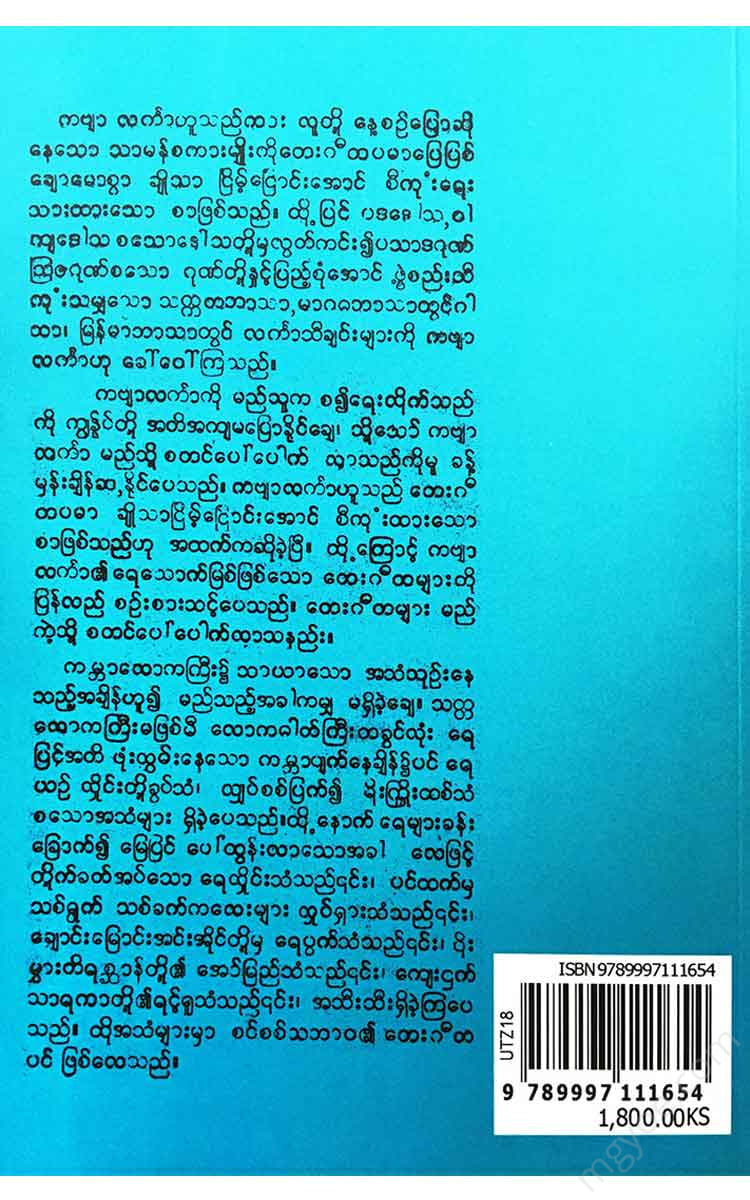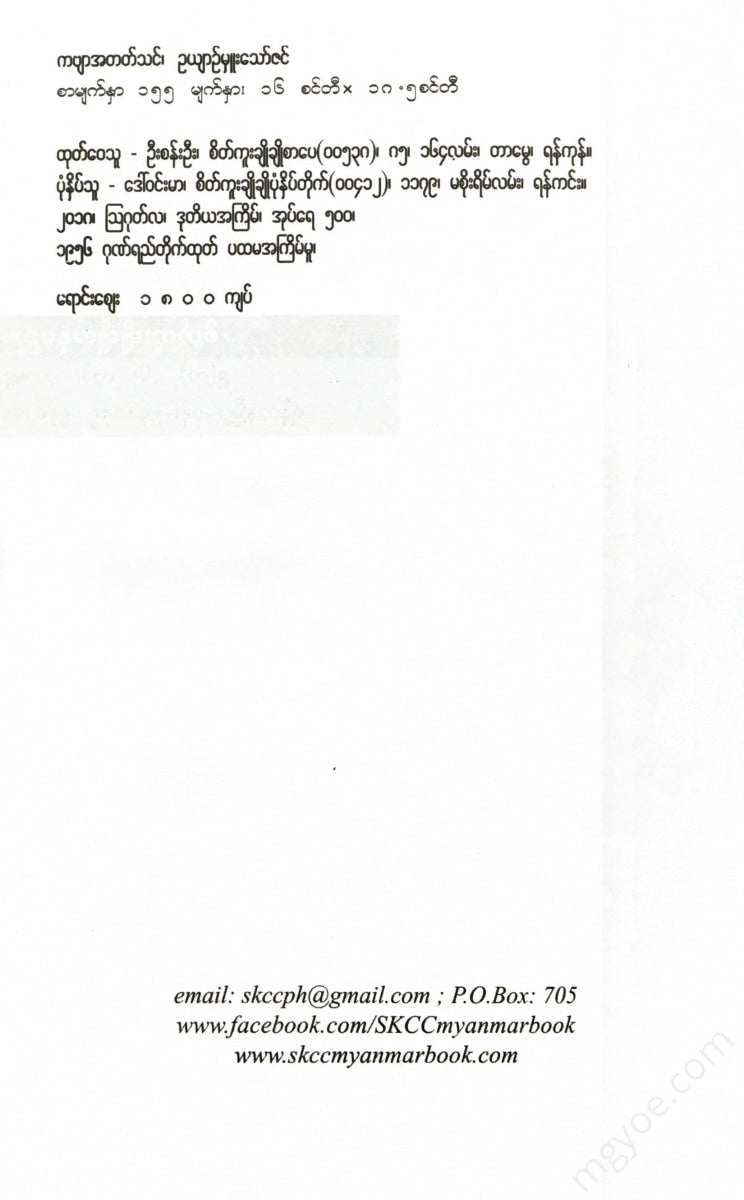စိတ်ကူးချိုချိုစာပေ
Gardener Thaw Zin - Learn Poetry
Gardener Thaw Zin - Learn Poetry
Couldn't load pickup availability
Learn poetry.
Poetry
A poetic verse is a composition of ordinary words spoken by people every day, arranged in a way that is as smooth, sweet, and melodious as music. In addition, any composition that is free from the antics of form and sentence and is filled with the qualities of form and influence is called a poetic verse in the Thekkadian language, a gatha in the Magadha language, and a lanka song in the Burmese language.
Poetry is not only found in Burmese literature, but also in various other languages around the world. However, one may wonder how poetry began. We cannot say exactly who began to write poetry. However, we can estimate how poetry began. As mentioned above, poetry is a piece of writing composed to be sweet and melodious, like music. Therefore, we should reconsider the music that is the source of poetry. How did music begin to emerge?
There has never been a time in the world when there was no sound. Before the world was created, when the entire world was covered with water, there were sounds such as the crashing of ships, the flashes of lightning, and the rumble of thunder. Then, when the waters dried up and appeared on the land, there were the sounds of the waves being blown by the wind, the sounds of the leaves and branches moving on the trees, the sounds of the water flowing in streams and lakes, the sounds of insects and animals, and the chirping of birds. These sounds were truly the music of nature.
The first humans were attracted to the pleasant, musical sounds of nature. Just as children imitate the sounds of their domesticated cats and dogs, so too did they imitate the sounds of nature. First, they imitated the sounds of animals around them. In particular, they practiced different sounds of birds. The sounds of birds are the easiest for humans to imitate.
The early humans spent the whole day hunting and fishing for food. When they were tired, they would gather at night and sing and imitate the sounds of nature, such as birdsong, rain, wind, and the rustling of trees. Some would also tell their stories and knowledge of the day while they rested.
In this way, it seems that it has become a habit to rely on the natural music of the environment and not speak in simple words, but to improvise with musical words. When talking in a group, people would clap their hands, stomp their feet, clap their hands, whistle, etc., as they would have fun. In this way, the speaker would speak sweet words that resemble music. It can be said that even the simple words, relying on the music and making them sound pleasant, have already taken on the essence of poetry.
But this is still only oral poetry. Even before the advent of writing, people had poems and songs that expressed their experiences in their hearts. Therefore, it is logical to see that when writing appeared, poetry and writing would appear.
The thing that allows us to convey our feelings, movements, and experiences in our minds to others so that they can experience and move in the same way is poetry. It is not easy to transform such feelings into the personal feelings of others. We need good weapons to show others what we know and see as we see. That good weapon is poetry, which is the sound, rhythm, rhythm, form, meaning, etc. that help us become an ornament.
A poem is not a poem just by adding rhymes. It needs to be decorated with tools such as rhyme, rhythm, and rhyme. In any language, there are rules and regulations for poetry, such as how to connect rhymes, how to set the tone, and how to create a beautiful poem. Only when these rules are systematically and completely organized and composed can it be a poem. Only when the poet uses these tools correctly can the reader fully experience the taste that the poet himself knows. I want to show you a poem that is consistent with rhyme and does not affect the taste of poetry.
Our family lives in Seinpantaw,
Young girls are shaking hands,
They are looking for a golden statue.
In this, the rhyme is only harmonious, and the meaning is not revealed at all. Although the rhymes in To-Kha and Dhaw are rhymed, the words that are pronounced with the hand are meaningless. This is a poem that does not have a rhyme. Using such meaningless words greatly affects the language. It is worth noting that it does not reach the level of poetry. Let us present a poem that is complete with rhyme, grammar, and atta, and that is also full of poetic taste.
On the edge of the moon, buy a Mya Mye Mon,
The wind blows, the leaves rustle.
The mouth of the village is open, the air is clear.
Nu'er Kham, Sarafi too,
The most knowledgeable of the season, like a wise man,
The forest is full of trees, the flowers are blooming.
Even though it is dry and brittle, it is not cheap.
It is on the ground, in a shape.
These rhymes are composed in two or three ways. The moon and the emerald, the sun and the earth, the kite and the moon are all three. The meaning is clear. The saraphi flowers and pithauk flowers, which have withered and fallen naturally according to the seasons, without anyone having to pick them, can be clearly seen in a large pile on the ground. Here, the reader can see the poet's beautiful flower bed, which he wants to describe, and the words that are the essence of poetry, which are the poet's good weapons.





